Getting some CT Grown products into your daily diet is easier than you might think. Here are 10 ways you can include CT Grown on your plate each day.
1. Look local for your morning eggs

If you like to cook up an omelet to get you going in the morning, take a look around your neighborhood to see where you might be able to pick up some fresh eggs. Many farms keep small flocks of chickens, and offer eggs at their farm store. Connecticut also has several large egg producers, selling products under brands like Eggland’s Best, The Farmers Cow, and Hillandale Farms.
2. Sign up for a dairy delivery
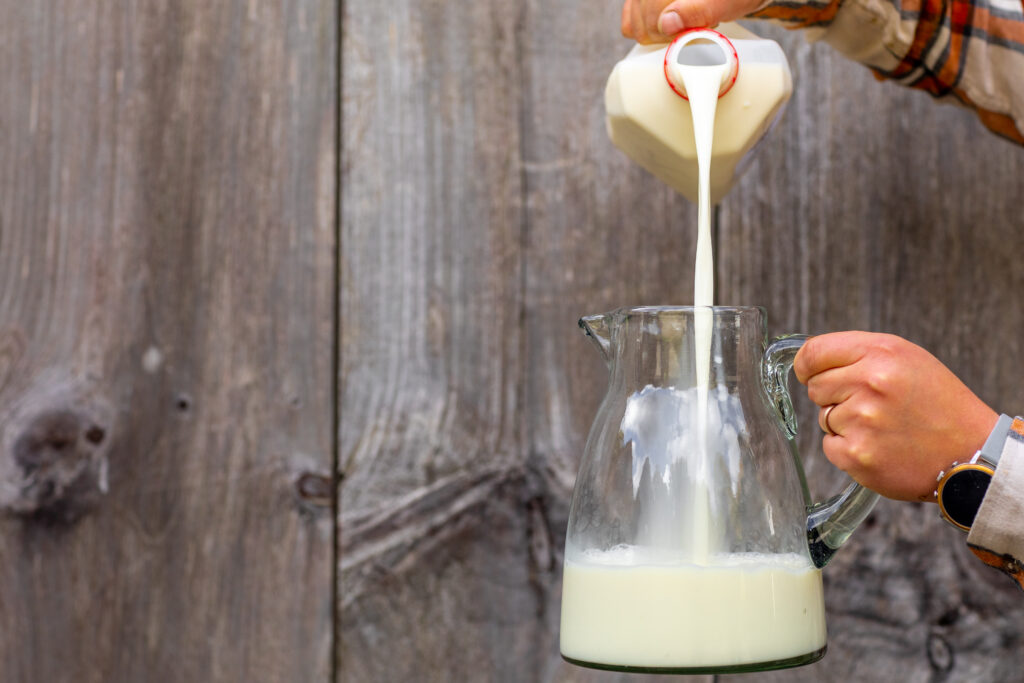
Several Connecticut dairy farms are working to bring the milkman back to our neighborhoods. You can find options for delivery services that bring fresh supplies of milk, yogurt, and cheese right to your doorstep. Some farms pair this offering with other CT Grown products, making it even easier to get your groceries and support your local farmers.
3. Pack a CT Grown apple for lunch
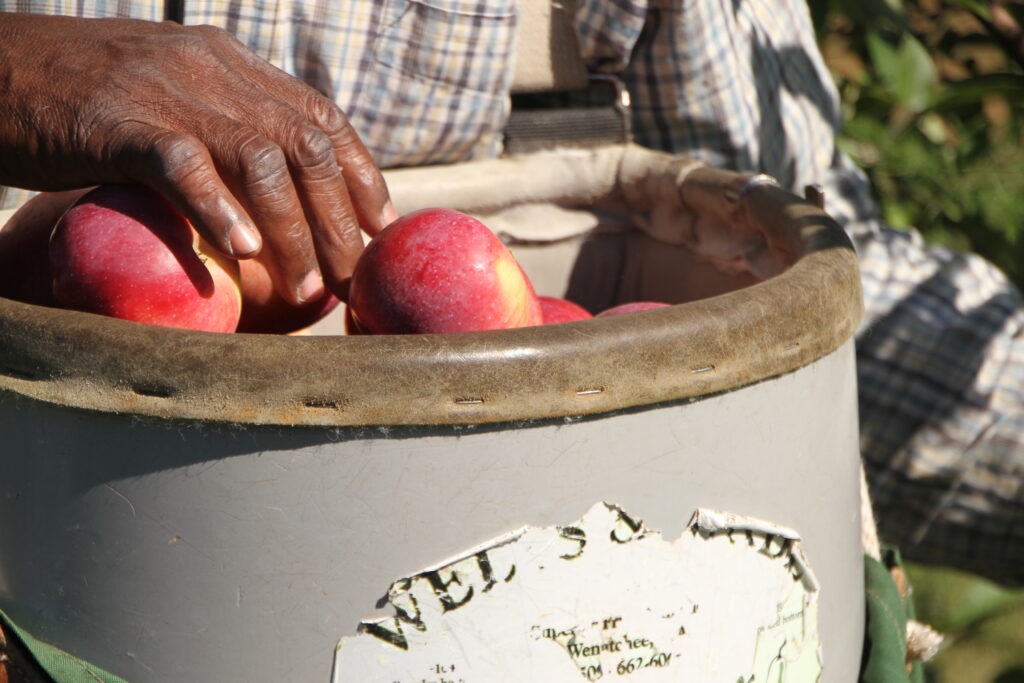
More than 2,000 acres in Connecticut are dedicated to growing apples, and bountiful harvests of this fruit are readily available from July to October. Visit an orchard to pick your own apples, then pack an apple with your lunch each day. Since apples store well, you can continue to find fresh apples from orchards throughout the winter and into the early spring.
4. Look for locally sourced items at your favorite restaurant
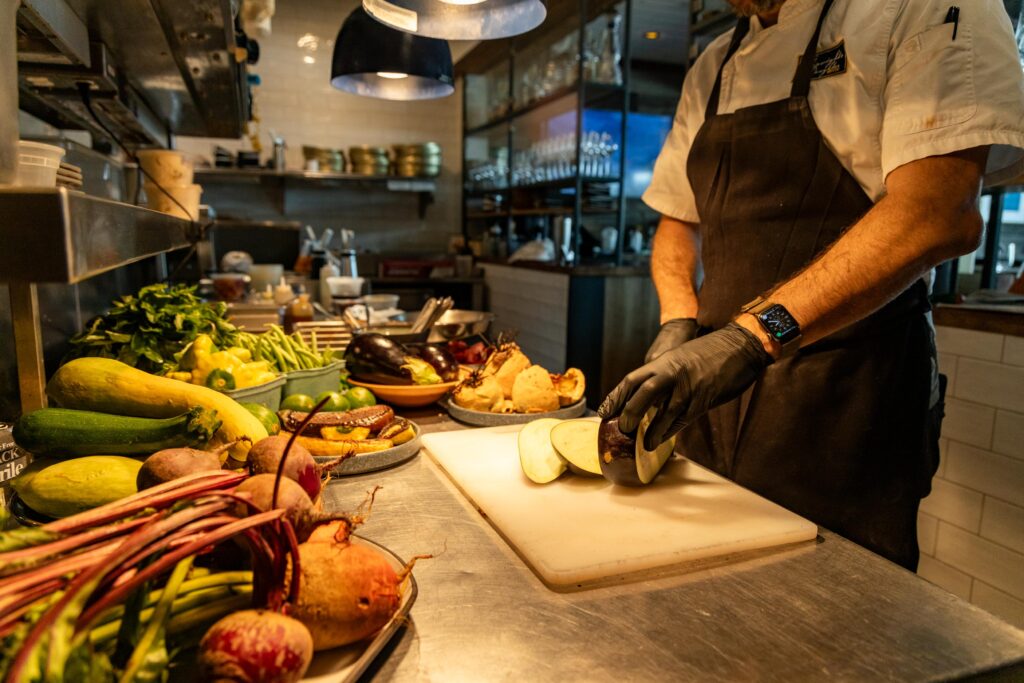
Several restaurants in Connecticut commit to partnerships with local farms to acquire seasonal items and staples such as dairy, meats, and shellfish. When local food is on the menu, you can enjoy fresh, seasonal items and discover delicious new varieties and cuts.
Be sure to check out CT Farm-to-Chef Week from September 9-16, 2023. This annual occasion showcases venues that use CT Grown food for their dishes and beverages, giving you a chance to discover new eateries with a farm-to-table commitment.
5. Find CT Grown when grocery shopping
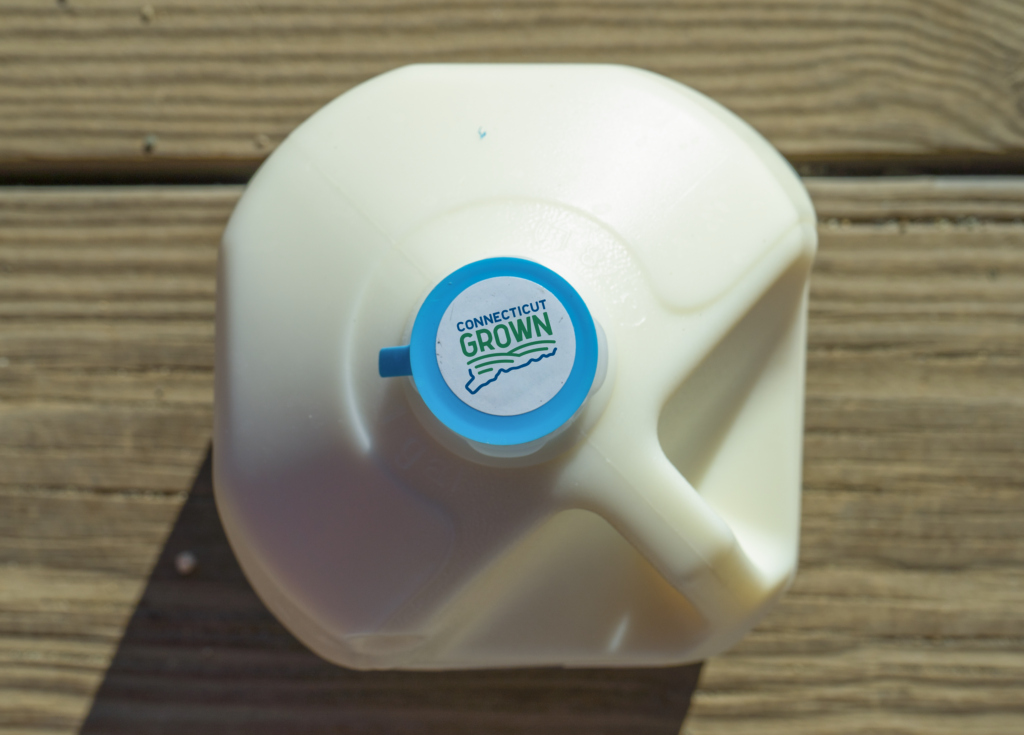
Connecticut farms often partner with wholesalers and retailers to make their products available at local grocery stores and food co-ops. Look for the CT Grown logo to find food items that are produced locally. Some stores also feature special displays to showcase value-added products from Connecticut producers, such as honey, sauces, maple syrup, and salsas.
6. Make a local farm your meat market
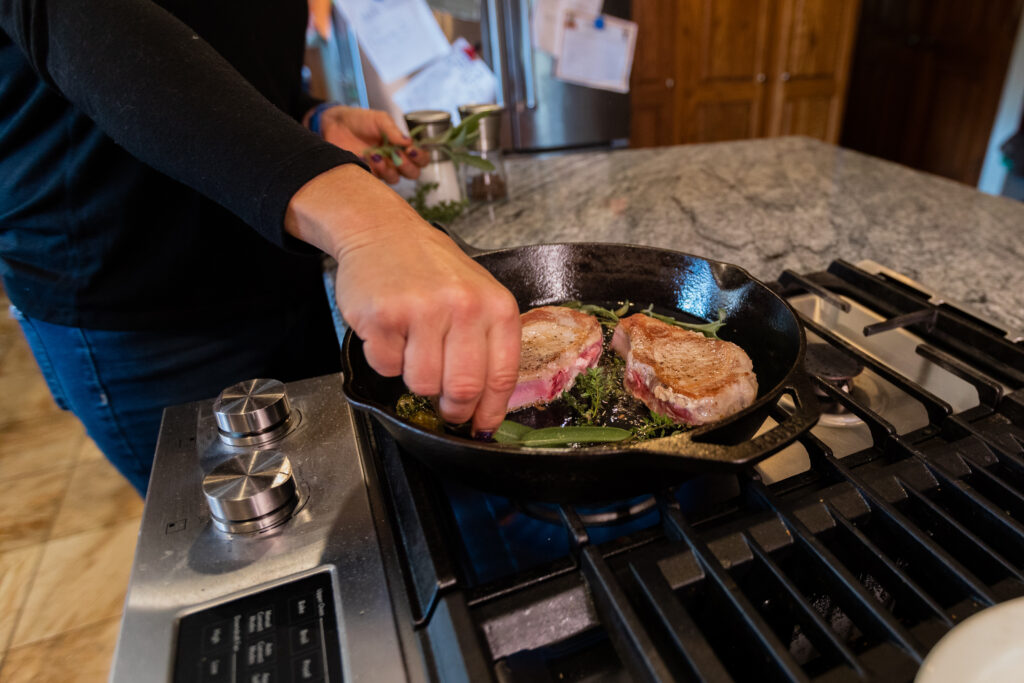
Connecticut farms raise a wide variety of meats, including beef, pork, chicken, turkey, and even specialty items like bison and emu. A visit to one of these farms not only lets you discover new cuts, but also gives you the option to purchase large shares of meat to freeze for future meals.
7. Stock up on local wines

Connecticut is home to 45 licensed farm wineries featuring scenic vineyards and beautiful tasting rooms. In addition to picking up local options when shopping for wine, you can also sign up for a membership, wine club, or Adopt-A-Vine program that lets you regularly pick up new vintages or enjoy discounts when you visit a winery.
8. Use pick-your-own for your baking needs

Pick-your-own farms give you a chance to get out in the fields and orchards to select fresh seasonal items like apples, berries, peaches, pears, and pumpkins. Farms invite visitors to purchase these products in bulk, and you can put these larger quantities to good use with mouthwatering baking options like pies, breads, and muffins that use locally sourced ingredients.
9. Become a regular at the farmers’ market

By visiting a farmers’ market each week for some of your grocery shopping, you can discover new varieties of produce, custom cuts of meat, homemade sauces and jams, and much more. You can also talk directly with local farmers to get advice on how to best prepare and store your food.
10. Start researching CSAs now
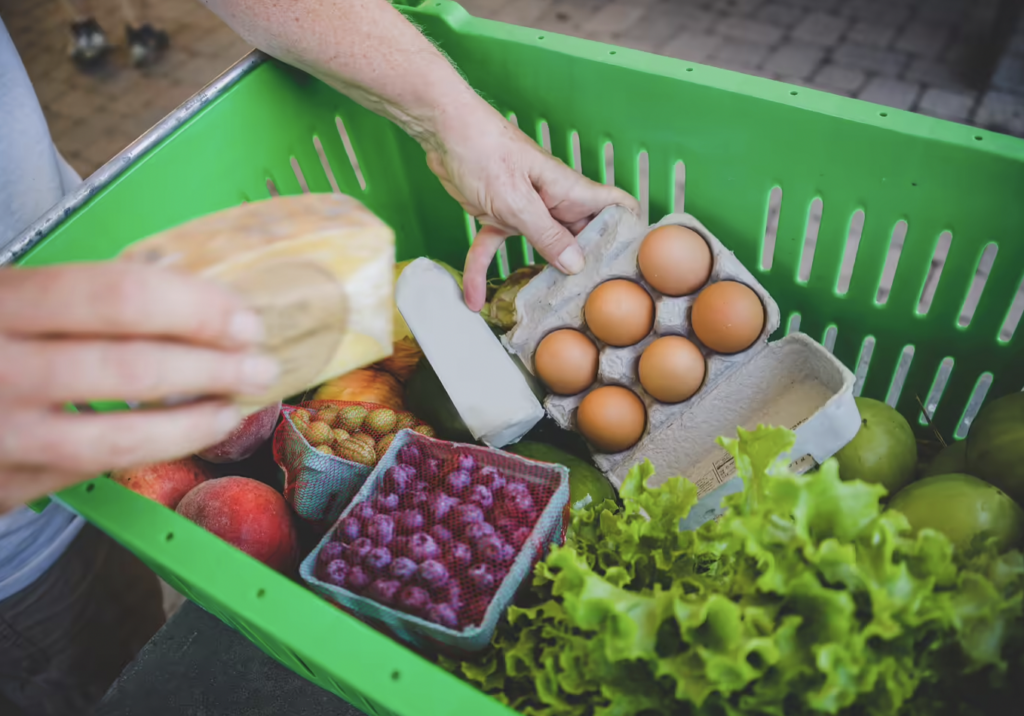
Many farms participate in Community Supported Agriculture (CSA) programs, where you purchase a portion of a farm’s harvest in advance and regularly pick up shares of fresh produce during the growing season; CSAs are also available for products like flowers, meat, and cheese. Farmers begin welcoming sign-ups for CSA programs at the beginning of the year, but you can start looking into options near you to find one that fits your needs.